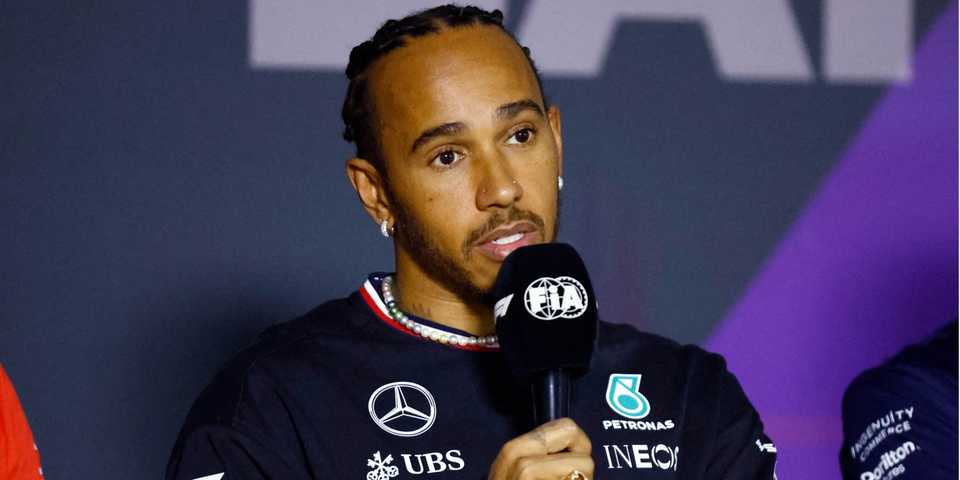
Why Lewis Hamilton Will Legally Change His Name..
Formula 1 champion Lewis Hamilton is known not only for his unparalleled racing skills but also for his bold statements on social and cultural issues. Recently, the 7-time World Champion revealed that he intends to legally change his name, a move that has piqued the curiosity of fans and media alike. While this decision may seem surprising to some, it is rooted in personal and deeply meaningful motivations.
A Personal Reclamation of Identity
Hamilton’s decision to change his name is fundamentally about reclaiming his identity. He has spoken out in the past about the difficulties of growing up as a mixed-race child in an environment that was predominantly white. The British driver’s mother is white, and his father is of Grenadian descent, a background that often placed him in a position of navigating two cultures. Throughout his life, Hamilton has often referenced the challenges of feeling like he didn’t quite fit into either world completely.
His name, Hamilton, was inherited from his father, Anthony Hamilton, whose heritage is rooted in the Caribbean. However, Hamilton himself has often spoken about the desire to embrace a more diverse or culturally inclusive identity that aligns better with his personal sense of self. This name change is part of a larger journey to reconnect with his roots and assert a sense of pride in both aspects of his heritage.
An Effort to Connect with His Ancestors
Hamilton has made it clear that part of his motivation for changing his name is to honor his ancestors. In the past, he has opened up about researching his family’s history and learning about his Caribbean roots. For Hamilton, this is more than just a name; it’s about acknowledging the struggles and achievements of those who came before him.
By legally adopting a name that may be more reflective of his ancestral background, Hamilton hopes to make a statement of pride and respect toward his family’s lineage. He sees this as a way of enhancing his connection to his roots, especially in the face of a modern world that often encourages individuals to assimilate or conform to a singular cultural identity. Changing his name allows him to take control of his narrative and reshape how he is seen in the world.
Challenging Norms and Making a Statement
Beyond the personal reasons behind his decision, Hamilton’s name change is also a public statement. As one of the most high-profile athletes in the world, his every move is scrutinized by millions. By making such a bold move, Hamilton is challenging conventional norms and sparking a wider conversation about identity, race, and culture. In many ways, his name change symbolizes the larger issues he has championed throughout his career, particularly in terms of racial equality and diversity.
Hamilton has long been an advocate for social justice and has used his platform to address systemic inequality, particularly within the world of motorsport. His activism includes efforts to improve diversity in F1, as well as speaking out about climate change, animal rights, and other global issues. Changing his name is yet another way for Hamilton to push boundaries and continue his advocacy for marginalized communities.
The Impact of the Name Change
While Lewis Hamilton is already recognized as a global icon, his name change will undoubtedly be a significant moment in his life and career. It serves as an act of personal empowerment, one that reflects his ongoing evolution as an individual and an activist. It also offers a fresh lens through which his supporters, critics, and followers can interpret his work and his legacy.
In conclusion, Hamilton’s decision to change his name is an important and deeply personal one, symbolizing his desire to take ownership of his identity, honor his roots, and continue to challenge societal expectations. It is a testament to his growth as a person and his unwavering commitment to using his platform for positive change. His decision will likely have a lasting impact on the way we view not only him but also the broader conversations around race, identity, and cultural pride.
Leave a Reply